Environmental Leadership: Latin American Perspectives on the Climate Crisis
Next week, the White House will host the Leaders Summit on Climate, a virtual meeting taking place on April 22 and 23 involving high-level discussions on how new and deeper global partnerships can help urgently address the climate crisis. Of the 40 world leaders invited to the summit, eight represent countries that are based in the Western Hemisphere.
In anticipation of a newly ambitious multilateral agenda in the United States, the Wilson Center’s Latin American Program hosted a discussion on the importance of environmental leadership and international cooperation in addressing climate change, with U.S. and Latin American government officials.
How have these nations addressed domestic obstacles and major challenges concerning sustainable development? Will ambitious climate policy speed up post-pandemic economic recovery? How should leaders in Latin America and other developing regions best partner with the new U.S. administration, including in the run-up to COP 26, the UN Climate Conference taking place this November in Glasgow?
*Minister Juan Cabandié will be presenting in Spanish, without simultaneous interpretation.
Selected Quotes
Trigg Talley
“At the State Department it is remarkable to me the speed and energy with which John Kerry has built a team that’s focused on virtually every aspect of our international agenda at a level and depth that we have not had before. So, I think it’s quite clear that the United States will be organized in a way that takes advantage of our considerable diplomatic and development capabilities over the next period of years.”
Andrew Griffin
“We know that enhancing national-level ambition is necessary but not sufficient and that in order to reach our shared goals we are going to need to work together. And in order to work together effectively, we need to start by listening to each other. That is why Special Presidential Envoy for Climate Kerry has been engaging directly with his counterparts and he’s really been inspired by the conversations he’s had with his counterparts in Latin America.”
The Honorable Peter Thomson
“While individual countries have made significant progress, no region has collectively done more to put words into action than the countries of Latin America, thereby showing what responsible leadership can mean.”
The Honorable Carlos Eduardo Correa
“2017 was the year with the highest deforestation in Colombia—219,000 hectares, and we have managed to reduce it by 10% in 2018, 19% in 2020, and our government’s goal is to reduce it by 30% by 2022, to achieve zero deforestation by 2030.”
Juan Cabandié (Translated from Spanish)
“We are pushing for and promoting a law that improves the current Law of Forests [in Argentina], in order to reduce the rate of deforestation in our forest basins. At the same time, we will be able to classify within the penal system, environmental crimes of clearcutting our native forests and forest basins. In addition, there is a proposed law for environmental responsibility extended to producers of packaging, to reduce the plastic containers and packaging that reaches our rivers, and finally reaches the sea. We have the firm commitment, of our president and the cabinet, and of our country, to not only advance in regulations and rules, but also in the discussion on climate change and the environment.”
Keynote Speakers
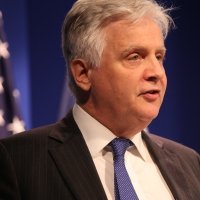
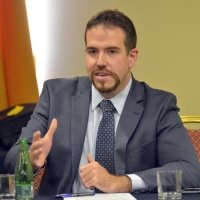
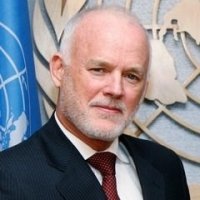
Moderator

Panelists

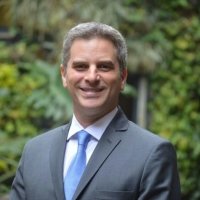
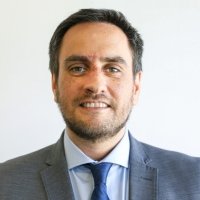
Hosted By

Latin America Program
The Wilson Center’s prestigious Latin America Program provides non-partisan expertise to a broad community of decision makers in the United States and Latin America on critical policy issues facing the Hemisphere. The Program provides insightful and actionable research for policymakers, private sector leaders, journalists, and public intellectuals in the United States and Latin America. To bridge the gap between scholarship and policy action, it fosters new inquiry, sponsors high-level public and private meetings among multiple stakeholders, and explores policy options to improve outcomes for citizens throughout the Americas. Drawing on the Wilson Center’s strength as the nation’s key non-partisan policy forum, the Program serves as a trusted source of analysis and a vital point of contact between the worlds of scholarship and action. Read more


Argentina Project
The Argentina Project is the premier institution for policy-relevant research on politics and economics in Argentina. Read more


Environmental Change and Security Program
The Environmental Change and Security Program (ECSP) explores the connections between environmental change, health, and population dynamics and their links to conflict, human insecurity, and foreign policy. Read more


